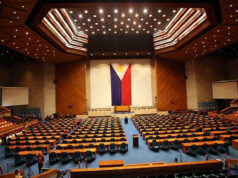LEAD for a Competitive Tomorrow
This piece is a slightly shortened version of the Inaugural Speech of Management Association of the Philippines (MAP) President Francisco Ed. Lim.

Dear friends, data is staring us in the face. For the past three years, foreign direct investments have consistently gone down, from $10.3 billion in 2017 to $9.8 billion in 2018, and are projected to fall further to $6.9 billion in 2019, or 33% decrease from the 2017 level. Indeed, our $6.9 billion 2019 FDIs will only be about one-third of Vietnam’s $20.4 billion and nearly one-fourth less than Indonesia’s $24 billion foreign investments in 2019.
The message from the world is clear — unless we in the Philippines shape up, foreign investors will continue to view us as an unworthy investment destination and they might rather put their money in our ASEAN neighbors. Events of the recent past have exacerbated this perception.
But these challenges cannot scare us into retreating from MAP’s tradition of leadership in progressive management thinking. On the contrary, this must inspire and urge us to step up and be leaders for change. For one, we have government officials like our guest speaker, Secretary [Ramon] Lopez, who not only have their hearts in the right places, but who also work hard day and night in attracting investments into the country. Our most recent performance under the World-Bank Ease of Doing Report and the bold initiatives being undertaken by the Administration of President [Rodrigo] Duterte are, indeed, very admirable and encouraging.
But my friends, government cannot do it alone. To paraphrase the great John F. Kennedy, ask not what our government can do for business but ask what we in business, together with the government, can do for our country.
There is, indeed, a clarion call for the public and private sectors to work together.
Driven by this need, it is thus appropriate that our Board approved our battle cry for 2020, “LEAD for a Competitive Tomorrow.” My call is basically a continuation of President Riza [Mantaring]’s theme of “Shaping a Competitive Future.” Indeed, it is, in no small way, a restatement of the themes of several past MAP Presidents.
But why LEAD in the first place? MAP is in many ways a unique organization. Indeed, as I speak before you today, MAP has 1,034 members representing 40 of the top 100 corporations in the Philippines. Around 74% of our members are either the chairman, CEO, president, managing director/partner, and country head of these companies. We have in our fold 72 listed companies whose combined capitalization is P9.3 trillion, representing around 60% of our stock market’s total market capitalization.
We are the movers of Philippine business and the numbers alone dictate that our organization, together with the other business groups, can lead the business sector in helping government bring about positive change for our country… And LEAD we shall!
Now, what does the acronym “LEAD” stand for? It stands for the four-point agenda that will guide our presidency, namely:
• Level up by enhancing Ease of Doing Business. We shall support the various initiatives of the government on Ease of Doing Business under the recently amended Republic Act No. (RA) 11032, more popularly called the “EODB Act.” This includes our active participation in “PROJECT REPEAL: The Philippine Red Tape Challenge,” an initiative to repeal laws and regulations which are unnecessary, outdated and burdensome to businesses.
Philippine Competition Commission Chairman Arsenio Balisacan has also accepted our invitation to speak before our membership in May on ensuring a level playing field for all businesses as a means of promoting a more competitive environment in the country.
In coordination with the Judicial Reform Initiative, we shall continue to work with the Supreme Court on promoting integrity and simplifying court procedures. The new Chief Justice has graciously granted us an audience on Jan. 27 to pursue this initiative.
But Ease of Doing Business must be addressed not only at the national level but, equally important, at the local level. To highlight the importance of this matter, we are signing today a Memorandum of Agreement with Secretary Lopez to participate in “Cities and Municipalities Competitiveness Index (CMCI), a very laudable Department of Trade and Industry (DTI) program that awards annually Philippine cities and municipalities based on Economic Dynamism, Government Efficiency, Infrastructure, and Resiliency. The program is envisioned as a tool for enhancing Ease of Doing Business in the Philippines and raise the overall competitiveness of the country.
This initiative will be coupled with a dialogue or dialogues with our mayors in Metro Manila where most of our members do business.
• Embrace Environmental, Social Responsibility and Governance (ESG) for sustainability. A fairly recent phenomenon is the increasing number of socially conscious investors. These investors consider, as part of their decision-making process for investing, a wide spectrum of issues that include how corporations respond to climate change, how good they are with water management, how their health and safety policies are [aimed at] the protection against accidents, how they manage their supply chains, how they treat their workers and whether they have a corporate culture that builds trust and fosters innovation.
In a publication last December, it was reported that ESG investing grew to more than $30 trillion in 2018 and was estimated to reach $50 trillion over the next two decades. Whether we like it or not, socially conscious investors believe that ESG supports a company’s long-term performance and sustainability.
We shall conduct activities that are meant to help our members appreciate this all-important development. We already lined up a speaker of note who will share their experiences on how they reconfigured their business model to respond to ESG and how the reconfiguration has benefited them.
My friends, we have to embrace ESG, lest we miss the boat — again.
• Accelerate best management practices. Accelerating best practices in management calls on our senior membership to be selfless and to think of country above self, by unselfishly sharing their insights and wisdom from years of experience with the other MAP members.
We shall strengthen and enhance the MAP CEO Academy to serve as the umbrella brand for all of MAP’s educational activities for the continuing education of our members.
We shall continue holding the MAP Teachers Training Program which brings together management practitioners and teachers to harmonize what students are taught vis-à-vis what employers need from future managers.
The efforts on this agenda item are designed to lead us to our final goal, which is to:
• Deepen the bench for future business leaders. This fourth thrust of our theme is, quite frankly, closest to my heart as a father, teacher, and mentor.
In my almost 40 years of practicing law and business that includes my stint as president of the Philippine Stock Exchange, I have come to realize that the infusion of young blood and fresh perspectives is one of the greatest life lessons. It is the audacity of the young to push boundaries tempered by wisdom from experience that will bring meaningful change in our society.
In an article I recently published on Rappler, I ruminated on how our young — yes, the “millennials” — have stepped into the limelight and shaken the world as we know it with their big dreams and bold attitudes.
It is inspiring to see our young generation taking an active role in shaping our communities and in building our nation. They have not only decided to demand more from their elders; they have taken it upon themselves to be the change in their own communities.
Mark Zuckerberg of Facebook and Larry Page of Google, who launched their businesses at ages 19 and 25, are powerful examples of how our young generation can change the world.
As the rest of the world continues to evolve and modernize — oftentimes faster than our ability to adapt — it is imperative for us to hone and elevate the professional and leadership skills of our young men and women to help build a better Philippines.
To this end, your board has targeted that no less than 20% of our membership should be 50 years old or younger. More importantly, your board created the NextGen Committee not only as a platform for new ideas from our younger members but, even more importantly, as a breeding ground for future business leaders.
In closing, let me assure our government of our fullest cooperation and support. We are not asking anything in return. All that we ask is to treat business with fairness and reason. Make our environment more conducive to doing business. We will do the rest.
Ladies and gentlemen, change and success do not happen overnight. But the steps we take today will shape the contours of our tomorrow. Together, as one MAP, I am confident we can make this happen!
Francisco Ed. Lim is Senior Partner and ExCom Member of ACCRALAW.



